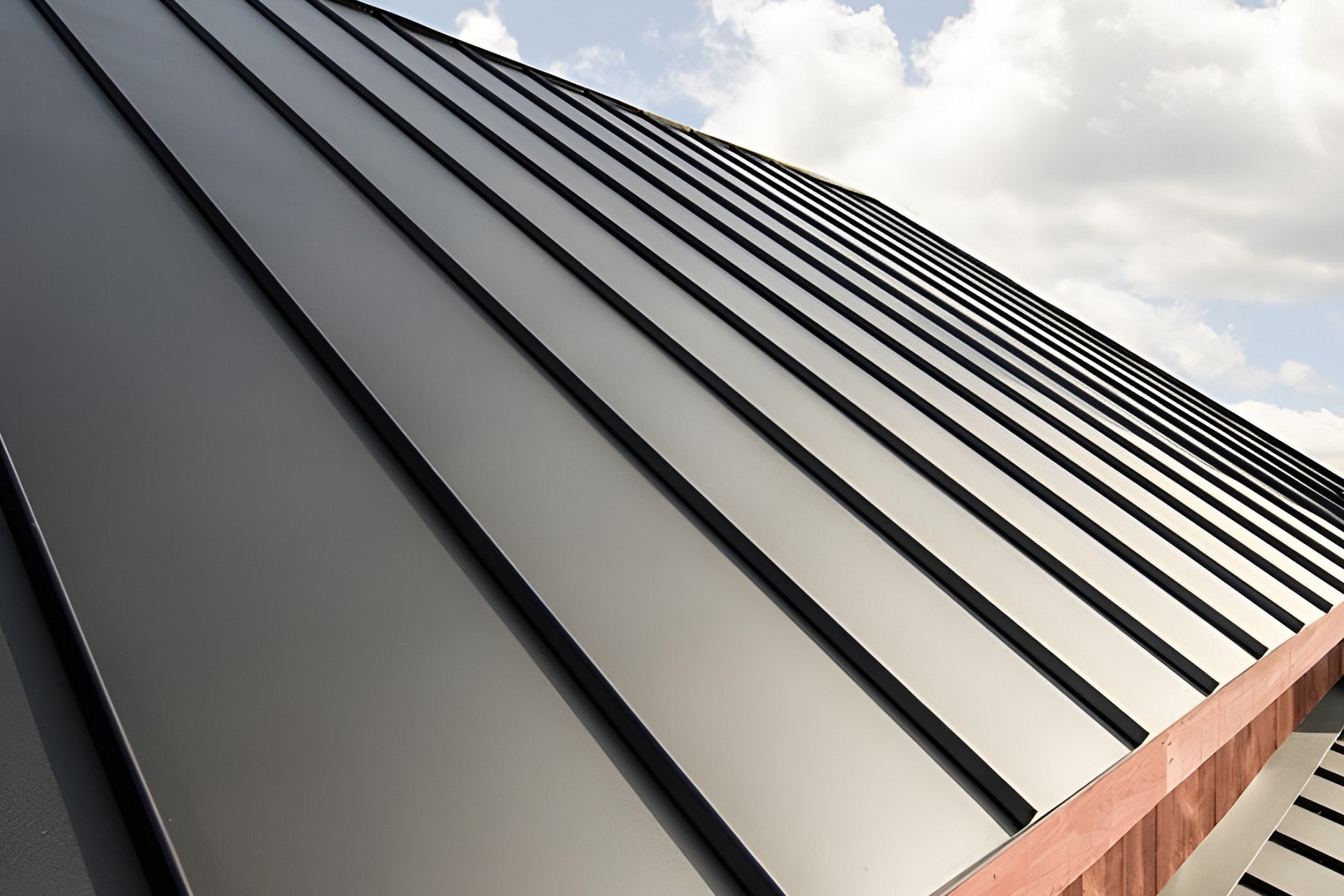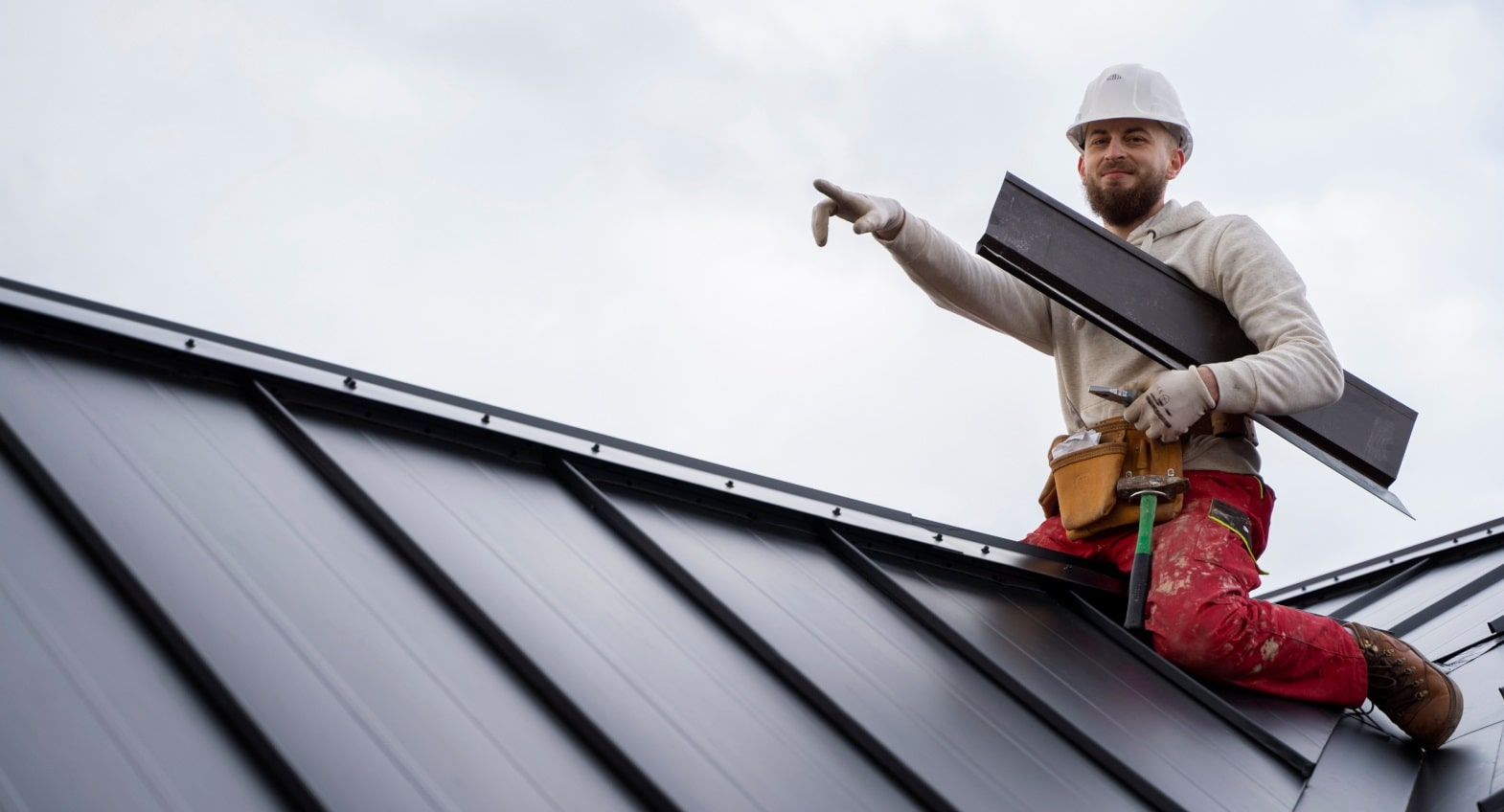What is Oil Canning of a Metal Roof?
Discover what causes oil canning in metal roofs and how to minimize it. From panel choices to installation tips, Affordable...

What is oil canning when it comes to metal roofing? When you invest in a metal roof for your home or building, you expect durability and longevity. However, you may encounter a phenomenon known as "oil canning." This term might sound peculiar, but it refers to a visible waviness or buckling that can occur on metal roofing panels. In this blog, we’ll delve into the intricacies of oil canning, and explore its causes and solutions to help maintain a visually appealing metal roof.
Definition of Oil Canning Effect
Oil canning refers to a visual deformation or waviness that occurs on the surface of a metal roof or wall panel. It is often described as a phenomenon where the metal appears to have waves or ripples, especially in broad, flat areas of the roof or wall system. This distortion can be subtle or more pronounced, depending on various factors such as lighting conditions, viewing angles, and the properties of the metal itself.
Oil canning is an inherent characteristic of light-gauge, cold-rolled sheet metal products. Although it can occur on any metal roofing, it is more common on a standing seam metal roof.
Despite its name, oil canning has nothing to do with oil. While oil canning does not affect the structural integrity of the roof, it can be a significant aesthetic concern as it may give the impression of poor metal roofing quality or workmanship.
What Causes Oil Canning?
Several factors can contribute to the occurrence of oil canning on a standing seam roof. Understanding these causes is crucial for effectively minimizing and preventing this issue:
Expansion And Contraction of Metal Panels
Metal roofing panels expand and contract in response to changes in temperature. This natural movement can lead to stress on the panels, resulting in the formation of waves or ripples, especially if the panels are not properly installed or if they lack sufficient room for thermal expansion and contraction.
Uneven Substrate
The substrate on which the metal roofing panels are installed plays a significant role in the appearance of oil canning. If the substrate or roof deck is uneven or irregular, it can cause the panels to buckle or warp, leading to oil canning.
Underlayment Is Not Flat
A smooth and flat underlayment is essential for ensuring the stability of metal roofing panels. If the underlayment is not properly installed or if it's not laid on a flat surface, it can introduce irregularities like bumps or dips. These imperfections are then transferred to the metal panels, exacerbating the risk of oil canning.
Settling Of A Structure
Over time, buildings may experience settling as the ground beneath them shifts or compresses. This settling can cause the structure to become uneven, which in turn can affect the appearance of the metal roofing panels and contribute to oil canning.
Fasteners Were Overtightened
To avoid excessive oil canning, it's important to install panels properly. Improper installation techniques, such as over-tightening fasteners, can place excessive pressure on metal roofing panels, causing them to warp or buckle. This can lead to the development of oil canning and compromise the integrity of the roof.
Mishandling Of Metal Panel
During transportation, storage, or installation, metal roofing panels may be subject to mishandling, such as bending or twisting. This mishandling can result in permanent deformities that manifest as oil canning on the finished roof.
Roll Forming
The manufacturing process of metal roofing panels, known as roll forming, can also influence the likelihood of oil canning. Factors such as material thickness, tension levels, and roller alignment can affect the quality and consistency of the panels, potentially leading to oil canning issues.

What Factors Best Disguise Oil Canning On A Metal Roof?
When it comes to minimizing the appearance of oil canning on a metal roof, certain factors can play a significant role in effectively disguising this phenomenon. Here are two key factors that can help mitigate the visibility of oil canning:
Lighter Colored Panels
Opting for lighter-colored metal roofing panels can help to conceal oil canning more effectively especially if the roof area is under direct sunlight. Lighter colors tend to reflect more light, which can help minimize the contrast between the waves or ripples caused by oil canning and the surrounding panel surface. This can result in a more uniform and visually appealing appearance for the roof, reducing the prominence of any imperfections.
Matte Finishes
Choosing metal roofing panels with matte finishes rather than glossy or reflective coatings can also help to disguise oil canning. Matte finishes diffuse light more evenly across the surface of the panels, which can help to minimize the appearance of any waviness or buckling caused by oil canning. Additionally, matte finishes tend to be less prone to highlighting imperfections compared to glossy surfaces, making them a preferable option for concealing oil canning on metal roofs.
How to Minimize Oil Canning
Oil canning, while a natural occurrence in metal roofing, can be minimized through various strategies aimed at enhancing the structural integrity and visual appeal of the roof. Here are three effective methods to reduce the likelihood and visibility of oil canning:
A Heavier Gauge Metal Helps Prevent Oil Canning
Opting for metal roofing panels with a heavier gauge sheet metal can significantly reduce the occurrence of oil canning. Thicker metal panels provide greater rigidity and resistance to bending or buckling, which are common causes of oil canning. By choosing a heavier gauge metal, homeowners and building owners can ensure a more stable and durable roofing system that is less prone to the effects of oil canning.
Oil Canning Prevention with Stiffening Ribs And Striations
Incorporating stiffening ribs and striations into metal roofing panels can help to distribute stress and pressure more evenly across the surface, thereby minimizing the risk of oil canning. These structural enhancements create additional support and reinforcement, reducing the likelihood of panel distortion and waviness. By investing in panels with stiffening ribs and striations, property owners can enhance the structural integrity of their roofs and mitigate the appearance of oil canning.
Decrease The Appearance Of Oil Canning With Corrugated Panels
Corrugated metal roofing panels feature a series of ridges and grooves that not only add visual interest but also help to minimize the visibility of oil canning. The corrugated design disperses sunlight and shadows across the surface, making any imperfections less noticeable. Additionally, the ridges and grooves provide additional stiffness and support, reducing the likelihood of panel distortion. By opting for corrugated panels, property owners can achieve a distinctive aesthetic while effectively decreasing the appearance of oil canning on their roofs.
Metal Roofing Contractors: Affordable Roofing Systems
When it comes to installing or repairing metal roofing systems, trust the expertise of Affordable Roofing Systems. Our team of experienced professionals is dedicated to delivering high-quality metal roofing solutions that are both durable and visually appealing. Whether you're looking to minimize oil canning, enhance energy efficiency, or simply upgrade your property's aesthetic, we have the knowledge and skills to get the job done right.
Ready to transform your roof with metal roofing solutions from Affordable Roofing Systems? Contact us today at (813) 542- 8462 to get a free estimate and experience the difference quality craftsmanship can make!
